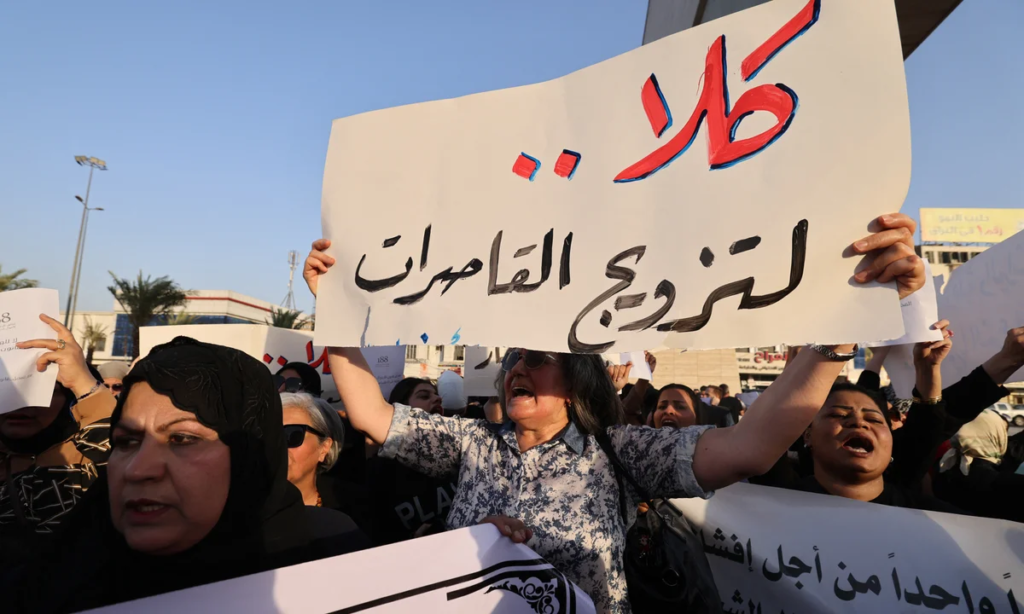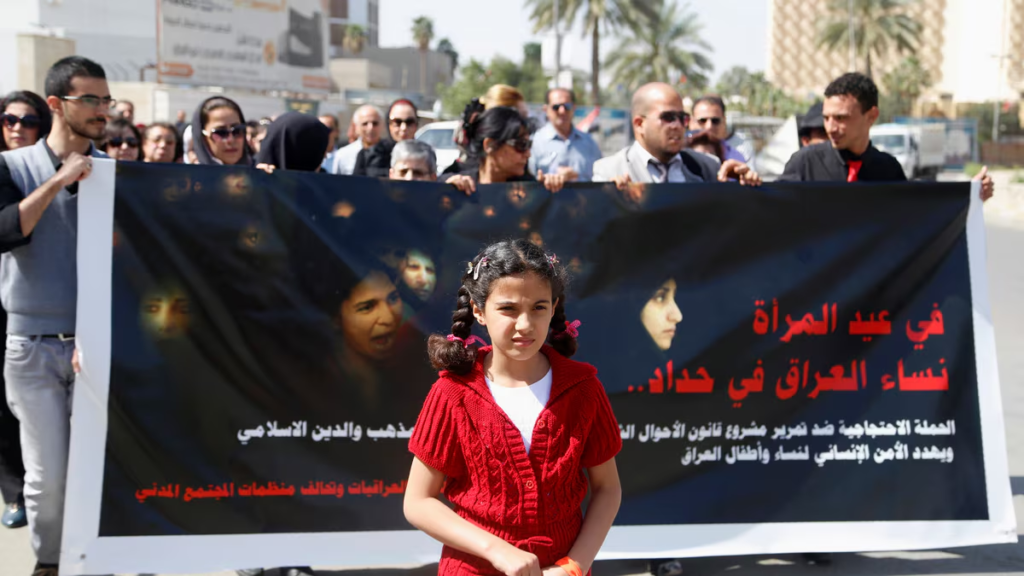A draft Bill in the Iraqi Parliament seeks to reduce the legal age of marriage for girls to nine, prompting the fears that it would legalise “child rape” and encourage exploitation. The Bill also allows boys as young as 15 years of age to marry. If passed, the proposed draft shall amend Personal Status Law which sets the minimum marriage to 18 years.

The proposal on the legal marriage age has sparked widespread protests among the women rights and human rights groups. While marriages under the age of 18 have been outlawed in Iraq but a UNICEF report says that 28 per cent girls, under the age of 18, are married in the country.
While all women MPs are trying to stop the passage of the Bill, they say they face strong opposition from their male counterparts.

Alia Nassif said, “Unfortunately, male MPs who support this law speak in a masculine way, asking what’s wrong with marrying a minor? Their thinking is narrow minded. They don’t take into consideration that they are the legislators that determine people’s fate … but rather follow their masculine thinking to authorise all this.”
As the Bill sparks outrage and concerns, let’s see what the proposal mentions:
- The proposed Bill would permit citizens to opt for either religious authorities or the civil courts to handle their family matters. This has sparked concerns that matters like inheritance, too, shall be interfered with
- The proposed draft was set aside when many members of Parliament objected to it but was introduced again in early August as it received significant support from some powerful Shia blocs
- The new amendments are a departure from the 1959 legislation which had shifted the decision son family affairs from religious figures to the state judiciary. The new Bill aims to reintroduce the option to apply religious rules
- The proposed amendments allow “Muslims of age” to decide what applies to them on family matters: The 1959 Personal Status Law or Sharia Islamic rules
- It also permits couples who are already married under civil law to switch to religious regulations.

Nadia Mahmood, co-founder of the Iraq-based Aman Women’s Alliance, told The Guardian that following the youth protests in 2019, “these political players saw that the role of women had begun to strengthen in society. They felt that feminist, gender and women’s organisations, plus civil society and activist movements, posed a threat to their power and status… [and] began to restrict and suppress them.”


